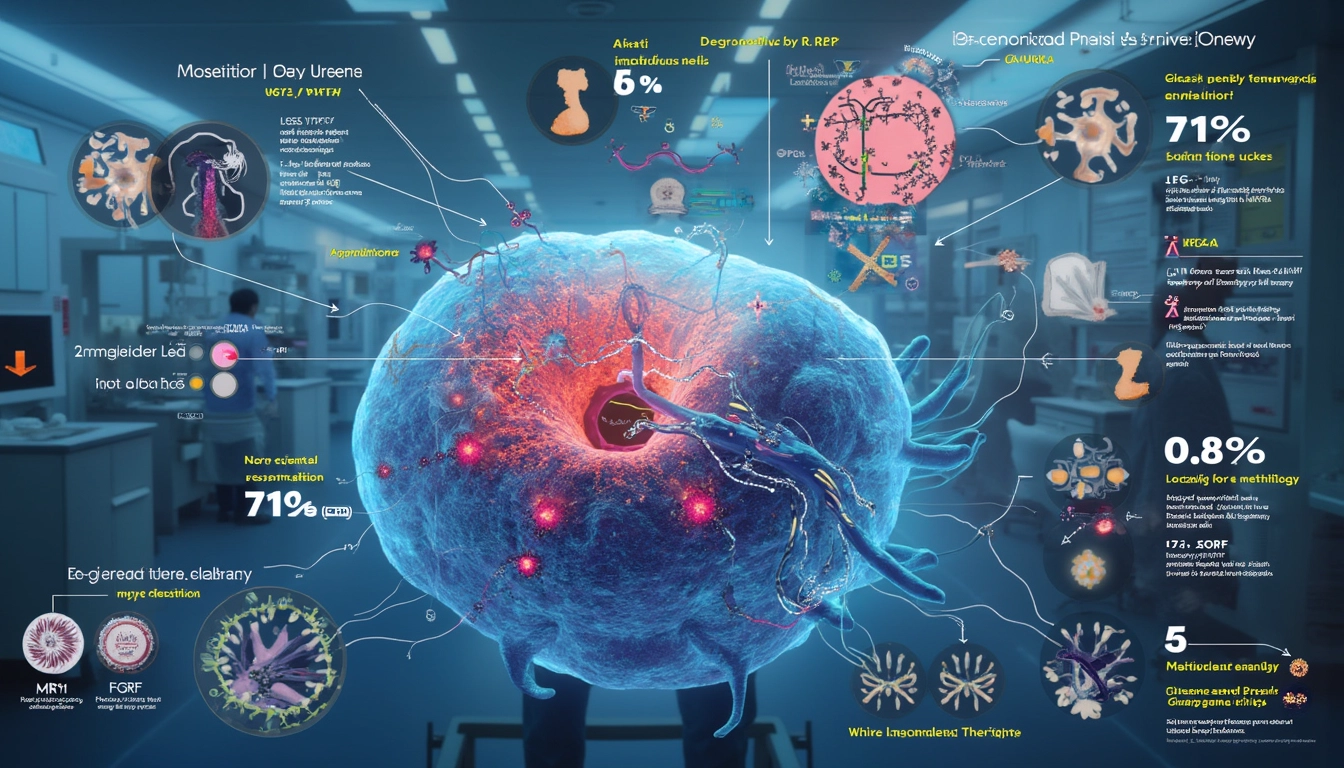
Genetic Mutations Drive Metastatic Castration Resistant Prostate Cancer Evolution
The genetic landscape of metastatic castration-resistant prostate cancer (mCRPC) reveals intricate molecular alterations that drive disease progression and treatment resistance. Recent research has identified crucial mutations in tumor suppressor genes and distinct epigenetic changes that contribute to the development of neuroendocrine prostate cancer, offering new insights for targeted therapeutic approaches.
Table of Contents
Key Takeaways:
- Genetic mutations in RB1, PTEN, and TP53 play vital roles in cancer progression
- Over 70% of mCRPC cases display genomic alterations in the AR locus
- Lineage plasticity enables cancer cells to transition between androgen-dependent and independent states
- JAK/STAT and FGFR pathways are key drivers of treatment resistance
- Novel epigenetic therapies show promise for treating advanced prostate cancer
Genetic Alterations and Disease Progression
The transition to metastatic castration resistant prostate cancer involves multiple genetic modifications. Studies have shown that mutations in tumor suppressor genes RB1, PTEN, and TP53 are fundamental to this transformation. These alterations lead to decreased androgen receptor expression and increased SOX2 expression, marking a significant shift in cancer cell behavior.

Understanding Lineage Plasticity
Lineage plasticity represents a critical mechanism in cancer progression. The ability of cancer cells to adapt and change their cellular identity contributes significantly to treatment resistance. As noted in recent technological advances in cancer research, this plasticity enables tumors to survive and thrive despite therapeutic interventions.
Molecular Pathways and Treatment Resistance
The activation of specific signaling pathways plays a crucial role in treatment resistance. MYCN and AURKA amplification appears in 40% of NEPC cases, significantly higher than in prostate adenocarcinoma. These molecular changes create opportunities for targeted therapies, similar to how technological innovations are transforming other medical fields.
Therapeutic Strategies and Future Directions
Emerging therapeutic approaches focus on targeting key molecular drivers. Using automation tools like Latenode can help researchers analyze complex molecular data more efficiently. AI-driven research methods are accelerating the development of targeted treatments, particularly in understanding the role of phylogeny in cancer evolution.
Clinical Implications and Future Research
The comprehensive understanding of these molecular mechanisms opens new avenues for treatment. Early detection of truncal alterations and the development of epigenetic therapies show particular promise. Clinical trials are currently evaluating various approaches, with a focus on targeting specific pathways identified through detailed molecular analysis.


